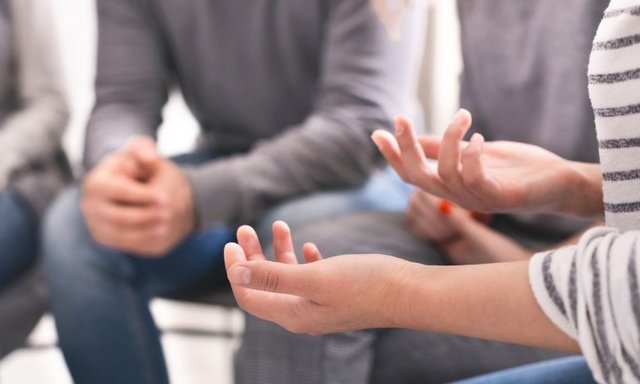Identifying Triggers For Alcoholism: Are Your Feelings Responsible For Alcoholism?
Use a journal to identify your triggers so you can avoid them. You can then become an expert at identifying triggers in order to avoid them. Unfortunately, many people are too accustomed to living in a world that is full of stress, tension, and worry. So how do you get yourself out of this trap?

Use a journal to identify your triggers.. Write down exactly what you felt, your initial reaction, where you was when the trigger occurred, who you were with, what you were doing at that time, and how you responded to the triggering emotions. Journaling such as this is an excellent tool for keeping track of all your triggered emotions. Reviewing your list each week and identifying these emotional feelings that usually evokes strong and extreme responses, otherwise called the "fight or fight... " response can be very effective in learning how to cope with stress and dealing with difficult situations.
In particular, observe your daily life activities, especially the things you frequently do that bring on powerful emotional responses. For example, if you're a smoker, cigarettes can be one of your trigger foods. If you smoke, try to take time out for yourself. This could help you find time to discuss your feelings and take time to relax. Many times a cigarette, which releases chemicals into your body, triggers strong negative emotions, such as guilt, shame, or fear.
Identify negative thoughts, feelings, and behaviors. Do you constantly worry about money? How about health issues? Identify your triggers so you can avoid these problems. You can also identify triggers that you know apply to you.
Evaluate your emotions. Is there someone or something in your environment that consistently upsets you? What could help you change this behavior or person? For example, some people are naturally afraid of the north dakota area (or anything related to North Dakota) and may experience these negative emotions when visiting there. A trip to a therapist may be an excellent suggestion. If you know you frequently experience these types of emotions, you may want to think more about your reactions prior to going to a particular location or person.
Once you've identified your emotional triggers, figure out a plan of action. Do you need professional help? Consider the options available for you: going to therapy (which many people find helpful), joining a support group, participating in an alcohol treatment program, or cutting out all alcohol consumption all together. These suggestions will vary from person to person, depending on the alcohol-induced triggers and your level of emotional sobriety.
In addition to identifying your triggers, you'll also want to determine how you're going to respond to them. Will you procrastinate to avoid having to confront them? Or do you embrace every opportunity to feel your emotions out in the open? Your trigger(s) could be triggered by certain events or circumstances (such as past abuse or rape, etc. ), certain words or situations (such as excessive touching of hands, kissing someone who doesn't like you, etc. ), or something else altogether.
You have to take action. There's no point in denying your trigger(s) or living with them, thinking you'll be okay. You will not be okay! You have to confront your emotions (no matter what type they are) or you will never be totally free of them.
Of course, you also need to realize that identifying triggers isn't limited to alcohol, either. Any substance use can trigger strong feelings, especially after prolonged use. This is why detoxifying is such an important part of overcoming any addiction - because not only do you remove the substance use from your system, but you rid yourself of these overwhelming emotions once and for all. No more numbness, no more fear of abandonment, no more compulsive picking or wanting to stay sober.
Another good idea to help identify your triggers is to ask a friend, family member, or loved one what their reaction would be if you ever exhibited the same behavior. Would they be supportive? Would they be angry? Could you benefit by sharing your trigger(s) with another person? You could gain insight into other people's reactions to similar situations - and find out whether you're likely to exhibit similar behaviors in the future.

It's not enough to simply wish away your feelings when you experience them, however. In fact, identifying triggers for alcohol use can do a great deal to ensure that you don't become addicted to alcohol in the first place. Even if you've suffered from alcoholism in the past, it's never too late to learn how to overcome those triggers once and for all! After all, the next time you feel the emotional rollercoaster of being around alcohol, you'll know exactly what you're feeling and why - and how to avoid experiencing them in the future.
Congratulations! Your post has been selected as a daily Steemit truffle! It is listed on rank 15 of all contributions awarded today. You can find the TOP DAILY TRUFFLE PICKS HERE.
I upvoted your contribution because to my mind your post is at least 15 SBD worth and should receive 35 votes. It's now up to the lovely Steemit community to make this come true.
I am
TrufflePig, an Artificial Intelligence Bot that helps minnows and content curators using Machine Learning. If you are curious how I select content, you can find an explanation here!Have a nice day and sincerely yours,

TrufflePig